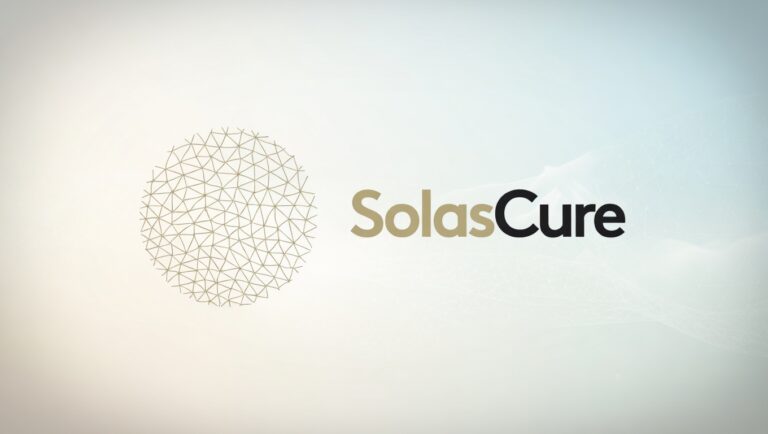
Inflammasome Therapeutics Reports Positive 3-Month Data for K8 in Geographic Atrophy
Inflammasome Therapeutics, a clinical-stage biotech company at the forefront of developing dual inflammasome inhibitors for prevalent ophthalmic and neurodegenerative diseases, has announced promising topline results from a clinical trial of its first-in-class K8 implant in geographic atrophy (GA), the most severe form of dry age-related macular degeneration (AMD). The trial, which was conducted at the University of Kentucky (NCT06164587), has yielded positive efficacy and safety data after just three months of treatment following a single injection of K8.
In the trial, five patients with bilateral GA were administered the K8 implant in one eye. Results showed that there was a mean reduction of 66% in GA lesion growth in the K8-treated eyes at three months, compared to the untreated contralateral eyes (p = 0.029, mixed effects model).
This was measured using fundus autofluorescence (FAF) imaging, independently assessed by a masked reading center. Notably, in all five patients, the K8-treated eyes experienced significantly slower GA lesion progression compared to their untreated eyes. Importantly, no drug-related intraocular or systemic safety issues were reported, and all patients will receive a second K8 injection at the three-month mark in this six-month trial. Given the highly positive data, the trial has now been expanded to 30 patients (60 eyes) to further evaluate K8’s potential.
Excitement About Results and Mechanism of Action
“We are thrilled to observe such a significant reduction in GA lesion growth just three months after a single injection,” said Jayakrishna Ambati, M.D., co-founder of Inflammasome Therapeutics. “Natural history studies of bilateral GA patients show that lesion growth rates in both eyes are nearly identical, with less than a 5% difference. Therefore, a 66% reduction in the K8-treated eyes compared to untreated eyes is compelling evidence of K8’s efficacy. K8 operates through a unique mechanism by blocking complement activation and targeting a variety of inflammatory pathways that contribute to GA progression. This novel approach has demonstrated broad-based efficacy across multiple patient types, irrespective of lesion growth rates or disease progression patterns, highlighting K8’s potential to treat this multifactorial disease.”

Paul Ashton, Ph.D., CEO and co-founder of Inflammasome Therapeutics, expressed further optimism, saying, “These initial clinical results are extremely encouraging. A single injection of K8, delivered through our unique drug-delivery technology, has provided a substantially faster and greater efficacy compared to the approved anti-complement therapies, which report around a 20% reduction in lesion growth after 12 months of monthly injections. K8 has shown a dramatic 66% reduction in just three months, indicating robust clinical effect and potential to surpass current therapies.”
Future Directions and Trial Expansion
The next phase of the ongoing six-month trial will continue to assess the safety and efficacy of K8, with injections scheduled every three months for up to 30 participants with GA. The primary endpoints for this trial are safety and differences in GA lesion growth between treated eyes and their contralateral untreated counterparts.
K8’s potential to alter the course of GA is significant, given that this condition currently affects approximately 1 million people in the United States and more than 8 million people worldwide. GA is characterized by the slow accumulation of toxic substances in the eye, including complement proteins, amyloid β, iron, and reactive oxygen species, which trigger inflammasome activation—a final common pathway leading to cell death in the macula and vision loss.
Current FDA-approved treatments only address a single pathway, such as complement inhibition, but they fail to comprehensively target the various harmful factors involved in GA. By contrast, K8 is designed to inhibit inflammasome activation caused by multiple toxic substances, providing a broader, more effective treatment option.
The Market and Future Potential of Kamuvudines
The global market for GA treatments is valued at over $30 billion annually, with significant interest from the biotech and pharmaceutical sectors in developing new therapies. Most existing clinical trials for GA target individual toxic substances, yet K8’s mechanism provides a differentiated approach, targeting multiple toxic pathways at once. If successful, K8 could offer a breakthrough in the treatment of GA, overcoming the limitations of current therapies.
Moreover, the potential applications of Inflammasome Therapeutics’ Kamuvudines extend beyond GA. The company is exploring the use of Kamuvudines in a wide range of neuro-inflammatory diseases, such as ALS, Parkinson’s disease, Alzheimer’s disease, and multiple sclerosis. Preclinical data has shown strong efficacy of Kamuvudine K9 in various neurodegeneration models, and oral K9 is currently being tested in clinical trials for thyroid eye disease. Inflammasome Therapeutics is also planning to initiate clinical trials in neurodegenerative diseases soon.
About Inflammasome Therapeutics
Inflammasome Therapeutics is a private, clinical-stage biotech company developing innovative, first-in-class dual inflammasome inhibitors known as Kamuvudines. The company’s lead product, K8, is designed to treat retinal diseases like GA by blocking inflammasome activation and reducing the impact of multiple toxic substances that contribute to disease progression. With a unique mechanism of action, K8 offers a potential breakthrough in the treatment of GA and other diseases with inflammatory causes.
The company is also advancing Kamuvudines for use in a variety of neuro-inflammatory conditions, aiming to provide new solutions for diseases such as Alzheimer’s, Parkinson’s, and ALS.




